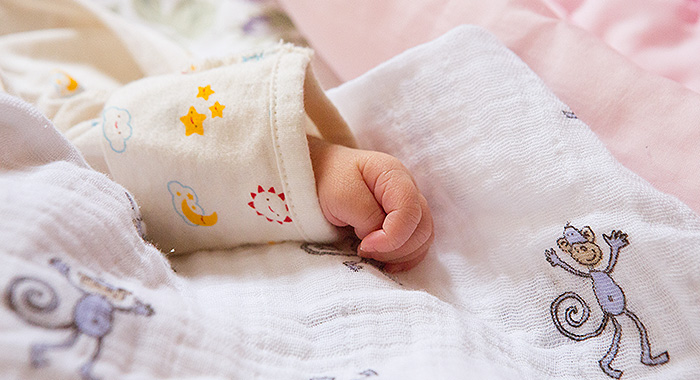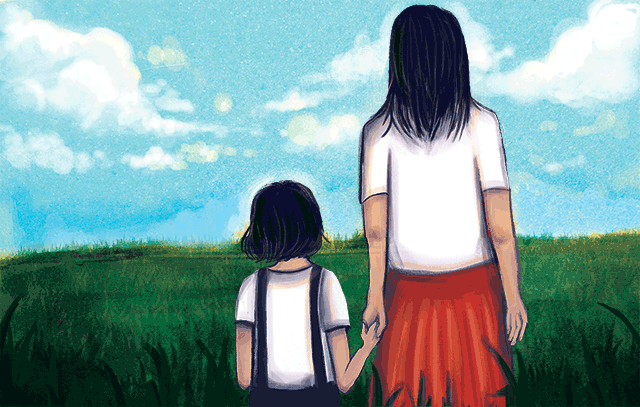Creating home: An Interview with our U.S. Resettlement Assistance Manager

While the majority of the North Koreans who come through our rescue network wish to resettle in South Korea, a small group choose to come to the United States. Drawn by family, friends, and new opportunities, they resettle all across the country. Because resettlement to the U.S. comes with its own set of unique challenges—mainly the language barrier—we have programs specially designed to help North Koreans find their footing in their first few years. Our U.S. resettlement manager Kris explains the details of the resettlement process and her work with LiNK in more detail.

Describe a normal day at your job.
What’s cool about my job is that no work day is the same. From helping a North Korean register for school to purchasing bikes for a family (both are things I have done very recently), every day is different. I travel quite often to visit refugees and to meet with partner organizations. I also spend a lot of time researching government and community benefits, changes in immigration laws, and educational resources. I will say that the two services I provide almost every day are translation and interpretation.

What do you enjoy most about your job?
The North Korean friends we work with are pretty awesome. It really is my privilege to be able to work with such an amazing group of people. I get to help them but I also learn so much. My job never gets boring. They challenge me to do more and be better. My colleagues at LiNK are pretty cool, too. =)
What is the most difficult part about your job? What was most surprising about the work you do?
The number of North Korean refugees who have resettled in the US is pretty small so people tend to put them in one group and form generalized opinions about them. But what I learned over the years and what some people might find surprising is that each person is so unique in their backgrounds, family dynamics, worldviews, reasons for defection, life goals and dreams. It’s challenging to be able to assess and meet their differing needs and help them reach not only self-sufficiency but also the eventual self-actualization and fulfillment. But I’m proud of the individualized and flexible case management that we have been able to offer to the people we serve. As we expand our work, I hope we will continue to have capacity to offer individualized care.

What are some of the challenges that our North Korean friends face as they resettle here in the US?
There are so many. Most common ones would be language and cultural barriers. Access to transportation is a huge challenge because although many states offer driver’s license exams in Korean, there are some that don’t, so the refugees have to learn English first in order to take the driver’s license exam. Some of the more recent and regionally-specific challenges are lack of affordable housing and immediate employment opportunities.

What are some of the challenges in running a North Korean refugee post-resettlement program here in the United States?
The fact that the people we work with are scattered all over the country makes it difficult to do anything in-person. Geography has always been the biggest challenge for me because I’d love for us to be more accessible to the refugees and do more in-person programs with them. Most refugee agencies serve local communities because it’s difficult to be a direct service provider from afar. We have to be creative to stay connected to the people we serve. One good thing that the pandemic did was normalizing virtual communication, and we were able to successfully execute an entrepreneurship program and a mentorship program virtually during the pandemic.
What was one of your most memorable events in this role?
Not long after one of our clients died in a car accident, I flew out to see her minor children. I knew that no words would bring comfort to them at that point. I took them out to see a movie and we went to get our nails done. Of course, we got some boba afterwards. Then per their request, we went out to a hot pot restaurant for dinner, and there we ran into some people from their church. The people assured me that the children will be taken care of and the community will be there for them. I went out there to bring some comfort for the children, but instead, I was the one that was comforted more than anyone. It’s just one of those days that I’ll always remember.

What is something you wish the world knew about North Korea or the North Korean people?
Maybe I can just say something about the North Korean refugees, rather than the entire country of North Korea or the North Korean people inside the country. North Korean refugees, in their defection and resettlement process, have gone through so many unimaginable obstacles and have overcome them with such incredible resilience and determination. I believe that they have this amazing potential to overcome any barriers and to succeed in their new life. I hope the whole world understands this and welcomes the refugees with open arms.
North Korean Refugee Stories: Meet Yoon Suk

Yoon Suk has vivid, happy memories of growing up in North Korea. She was raised during a time when state-socialism was relatively functioning, and the government could provide basic necessities to its citizens. She remembers wearing beautiful nylon (a highly-sought after fabric back in the earlier days of North Korea) uniforms with bows and red, patent-leather shoes to school. She also had a passion for the arts and performed frequently on stage. But as she grew older, the shine in her shoes began to fade and the hunger in her belly began to grow.
After the collapse of the Soviet Union, North Korea lost crucial sources of subsidized trade and aid and the North Korean economy crashed. It was during this time that Yoon Suk got married, but what should have been a happy time in her life ended up being far from it. The regime’s mismanaged agricultural and environmental policies were confounded by harsh weather, plunging the country into a severe famine that lasted for years. Yoon Suk and her husband struggled to survive on the meager rations they received—and they were not alone. During this period, an estimated one million people died from starvation, while many of those who survived suffered immensely.
Yoon Suk, knowing that she had to do something to keep her family alive during the most difficult years of the “Arduous March,” turned to the jangmadang—small, illegal markets where people sold and traded anything they could for food. Yoon Suk was like many North Korean women in this new reality, abandoning her traditional role for market activities. Unfortunately, running her modest merchant business was more challenging than she had anticipated and she struggled to keep it afloat. As the situation grew worse, she discontinued her business and looked for other ways to support her family, which had grown by two with the birth of her sons. It was during this time that she learned that life might be better in booming China.
As recently as three decades ago, Chinese people were on average poorer than their North Korean neighbors. But China’s economic reforms have produced wealth and opportunities that are the envy of nearly all North Koreans today. Since North Korea’s economic collapse, which lead to unprecedented cross-border movement and inflows of Chinese goods and media, North Koreans have gained a painful awareness of just how far their formerly impoverished Chinese neighbors have come.

But it’s extremely risky for North Koreans to escape their country. The North Korean regime makes it illegal to leave without explicit permission and if Yoon Suk was caught trying to escape, or caught in China and sent back, she would be punished severely. Yet, the opportunity was too great to pass up and she fled for the first time in the mid-2000s.
Once she arrived, alone in a foreign country where she didn’t speak the language, Yoon Suk was sold to a Chinese man as his bride. China’s lack of marriageable women, particularly in rural areas of the northeast, creates high demand for female North Korean refugees like Yoon Suk. Without legal status and no protection from the authorities, these women are often kidnapped by sex traffickers and sold, sometimes for as little as $200.

Even though she was now living with a Chinese man, Yoon Suk still wasn’t safe from the watchful eye of the Chinese authorities. North Korean refugees’ well-founded fear of persecution if repatriated means that they should be protected under international refugee law. However, the Chinese government labels them as “economic migrants,” so they can forcibly send them back, as per their agreement with the North Korean regime. Yoon Suk was caught by Chinese police not even a month after arriving and was forcibly repatriated back to North Korea. There, the authorities sent her to a prison camp, where she was abused, beaten, and starved.
After all she had gone through, Yoon Suk was still undeterred from finding freedom outside of North Korea. She escaped again to China shortly after her release from the prison camp. She was sold off three times by traffickers, again under the pretense that she was going to be given work. With the last husband, she had her beautiful daughter.

Yoon Suk wanted to give her daughter a better life, and knew that would not be possible in China. Without the proper documentation, her daughter would have difficulty even going to school and would be denied the opportunities available to other Chinese children. Yoon Suk and her daughter escaped China together through Liberty in North Korea’s network and are now on their way to safety in South Korea.
Yoon Suk is excited for the life and opportunities that lie ahead of her. She’s a talented cook and wants to explore the option of obtaining a culinary certificate in South Korea. She also has high hopes for her daughter, who loves art just like her mother did as a young girl, and wants to enroll her in dance and painting lessons. Yoon Suk’s greatest wish is to reunite with her two adult sons someday. She often dreams about appearing on TV to send a message to her sons, showing them she’s alive and well.
Thank you for helping supply the funds for Yoon Suk’s rescue. Your efforts have changed her life and have provided the opportunity for her to enjoy her new LIBERTY.
Fundraise or donate to help rescue more North Korean refugees today!




